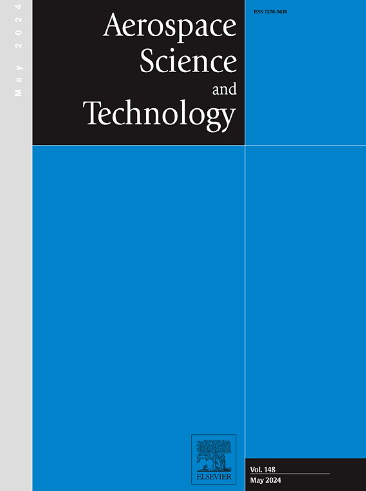航天器健康监测无模型故障检测框架
IF 5.8
1区 工程技术
Q1 ENGINEERING, AEROSPACE
引用次数: 0
摘要
航天器中的子系统故障如果不及时处理,可能导致显著的性能下降和任务安全受损。为了降低这种风险,本文引入了一种无模型故障检测框架,旨在增强机载健康监测,而不依赖于详细的系统模型。该方法将支持向量机与仿生负选择算法相结合,实现有效的自/非自分类,同时采用克隆选择算法对模型的超参数进行动态优化,提高模型在不确定条件下的适应性。在航天器姿态确定与控制系统试验台上对该框架进行了验证,并模拟了一系列故障场景。结果表明,该结构优于传统的独立负选择数据驱动方法,在检测异常行为方面实现了更高的整体效率。具体来说,该方法将故障激活时间减少了10.5%,执行时间减少了82.5%,捕获偏离标称条件的准确性提高了5.4%。这些发现突出了生物启发机器学习在支持自主和容错航空航天系统开发方面的价值,这些系统能够在复杂环境中可靠运行。本文章由计算机程序翻译,如有差异,请以英文原文为准。
Model-free fault detection framework for spacecraft health monitoring
Subsystem failures in spacecraft can lead to significant performance degradation and compromised mission safety if not addressed promptly. To mitigate such risks, this paper introduces a model-free fault detection framework aimed at enhancing onboard health monitoring without relying on detailed system models. The proposed approach integrates a support vector machine with a bio-inspired negative selection algorithm for effective self/nonself classification, while a clonal selection algorithm dynamically optimizes the model’s hyperparameters to improve adaptability under uncertain conditions. The framework is validated on a spacecraft attitude determination and control system testbed, where a series of fault scenarios are simulated. Results show that the proposed architecture outperforms a traditional standalone negative selection data-driven method by achieving higher overall efficiency in detecting anomalous behaviors. Specifically, the proposed method achieved a 10.5 % reduction in fault activation time, an 82.5 % decrease in execution time, and a 5.4 % improvement in accuracy for capturing deviations from nominal conditions. These findings highlight the value of bio-inspired machine learning in supporting the development of autonomous and fault-tolerant aerospace systems capable of operating reliably in complex environments.
求助全文
通过发布文献求助,成功后即可免费获取论文全文。
去求助
来源期刊

Aerospace Science and Technology
工程技术-工程:宇航
CiteScore
10.30
自引率
28.60%
发文量
654
审稿时长
54 days
期刊介绍:
Aerospace Science and Technology publishes articles of outstanding scientific quality. Each article is reviewed by two referees. The journal welcomes papers from a wide range of countries. This journal publishes original papers, review articles and short communications related to all fields of aerospace research, fundamental and applied, potential applications of which are clearly related to:
• The design and the manufacture of aircraft, helicopters, missiles, launchers and satellites
• The control of their environment
• The study of various systems they are involved in, as supports or as targets.
Authors are invited to submit papers on new advances in the following topics to aerospace applications:
• Fluid dynamics
• Energetics and propulsion
• Materials and structures
• Flight mechanics
• Navigation, guidance and control
• Acoustics
• Optics
• Electromagnetism and radar
• Signal and image processing
• Information processing
• Data fusion
• Decision aid
• Human behaviour
• Robotics and intelligent systems
• Complex system engineering.
Etc.
 求助内容:
求助内容: 应助结果提醒方式:
应助结果提醒方式:


